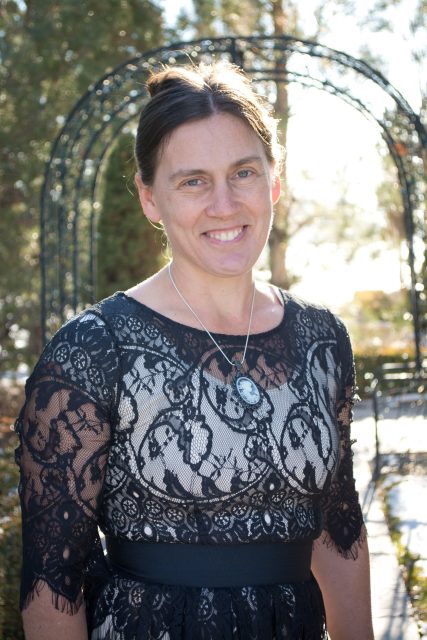A guest post by Mette Harrison
If I were to try to imagine the future of a thriving Mormonism (besides the obvious repeal of the current policy on same-gender married couples and more gender equality in leadership), what would that look like?
- A re-imagination of heaven in which gender, sexual orientation, and race are not part of God’s inherent qualities. Nor does what we call “disability” here on earth need to be fixed or cured in the resurrection in order for everyone to belong in heaven.
- A complete reworking of The Book of Mormon to deal with racism and gender issues, and the elevation of other great works on the subject of deity to the level of scripture. I’m thinking of the hymn “O My Father” by Eliza R. Snow, the play Mother Wove the Morning by Carol Lynn Pearson, and the collection of poems Mother’s Milk by Rachel Hunt Steenblik, as well as sermons by Fatimah S. Salleh.
- Better artwork in general in our worship buildings, and money paid to artists for their work. They ought to receive a decent rate and royalties.
- New songs that eliminate hero worship and masculinity/war as metaphors for God (see “We Are All Enlisted” and “Onward Christian Soldiers”). Songs about womanhood and love everlasting will abound in my new Mormonism and we will sing “Lord, I Would Follow Thee” as it ought to be sung, with “sister” in place of “brother.”
- Lesson manuals that highlight topics and scriptures and allow conversation to be the guide, instead of the current strategy of dictating a “correlated doctrine” that tends to be white and Utah or American-centric, and definitely middle class. We need to learn how to talk to each other more openly, how to invite different voices, and how to deal with disagreement in love.
- A revised historical view of past Mormonism that does not apologize for or minimize what happened. Let the flaws of the past be looked at carefully and examined. Let our leaders be truly flawed. Let God be missing from some events. Let God be truly present in others.
- Minimal talk about dress and appearance as a metaphor for worthiness. Let people wear what they are most comfortable in, because God accepts us as we are. We need to do the same. Sometimes Mormons will argue (as Elder Oaks did in a talk some years ago) that God requires a formal kind of respect in prayer, but in most languages, we use the most intimate pronouns in communication with God. Why shouldn’t we also be able to dress as comfortably as we pray in our homes? Are we dressing up for God, or for each other?
- More meals together. I’d like to see us have potlucks at church every week. Invite ward members over to your house for dinner frequently. Share and really listen to each other. That’s how we truly learn to love. Food is often a token of our feelings for each other—and sharing food together, whether we’re fasting beforehand or not, will tend to make us feel more kindly toward each other. I mean, how can you have bad feelings toward someone who just fed you funeral potatoes and better-than-sex chocolate cake?
- Careful thought about the idea of having all things in common. We promise in the temple to give all we have to the Lord, but are we doing this? I don’t mean paying tithing here, or giving more to the institution, but finding more ways to give to people around us beyond our fast offerings. Our church is already superb in the way we manage the Bishop’s Storehouse and Deseret Industries. Could we do more for housing needs or for those who need help with child care or elder care? Could we do a better job of providing higher education and mental health care without stigma?
- More care for the earth. I’ve already written about some steps I think wards and stakes could take to reduce waste and pollution, like walking or riding bikes to church, recycling more at events and meetings, and sponsoring greener homes.
There are so many things I loved about the church I grew up in, including the sense of specialness that came with being a Mormon and the purpose I felt in my individual mission from God.
I don’t want to lose either of those things, nor do I want Mormonism to dissolve into a general Christianity. But the idea that we shouldn’t change unless our leaders command us to seems to run contrary to our own scriptures, that say we don’t need to be commanded in all things and that we all have the responsibility to promote more good in the lives around us. To me, that is the most Mormon thing of all.
Other posts by Mette Harrison:
- When your child resigns from Mormonism
- I have autism . . . and I’m a Mormon
- 10 reasons Mormons dominate multi-level marketing companies






